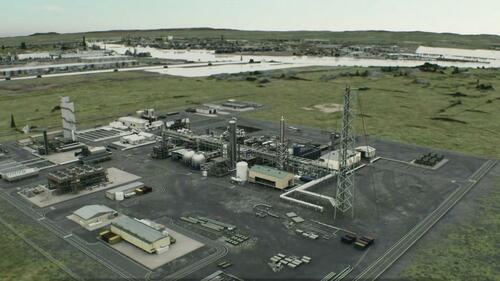Technip Energies to design groundbreaking low-carbon hydrogen facility for bp at Teesside in the United Kingdom
- H2Teesside is expected to be one of the UK’s largest low-carbon hydrogen production facilities - fully integrated with carbon capture technology.
- The project is targeting 1.2 GW of low-carbon hydrogen production, which equates to more than 10% of the UK’s 2030 hydrogen production target.
- It could capture and send for storage over two million tonnes of CO₂ per year, which is the equivalent to capturing the emissions from the heating of one million UK households.
- This project could also support economic development, jobs creation and regeneration of the Teesside region.
- Technip Energies and technology selection marks an important next step towards UK decarbonisation strategy.
Technip Energies has been awarded the Front-End Engineering Design (FEED) contract by bp for the H2Teesside project in the North East of the United Kingdom. H2Teesside is expected to be one of the UK’s largest largest low-carbon hydrogen production facilities - fully integrated with carbon capture technology.
As part of the FEED study, Technip Energies will deliver a comprehensive design utilising their in-house expertise and global best practices to design large scale project, integrating hydrogen and carbon capture technologies.
In the perspective of a 2025 final investment decision, the next step for Technip Energies, if selected, will be to provide the full Engineering Procurement, Construction and Commissioning (EPCC) package for the project.
As part of the East Coast Cluster, the integrated H2Teesside hydrogen production and hydrogen distribution pipeline will integrate with other decarbonisation projects in the region. The CO2 captured from the H2Teesside facility will be exported to the Northern Endurance Partnership (NEP) CO2 gathering system.
Mario Tommaselli, SVP Gas and Low Carbon Energies of Technip Energies commented: “Being selected for bp’s H2Teesside project highlights Technip Energies' proven experience in working as a technology integrator on large-scale projects. By leveraging our extensive expertise in hydrogen and carbon capture technologies, we are well-positioned to deliver innovative at-scale solutions that align with the UK’s ambitious decarbonization targets.”
Andy Lane, VP for hydrogen and CCUS at bp, UK, said: “These agreements mark further critical milestones for H2Teesside as the project continues to move towards EPC contracts and then construction. The project could play a critical role in decarbonising industry on Teesside, helping to transform the region into a leading hydrogen hub and kickstart the UK’s low carbon hydrogen economy.”
Latest news
INEOS Invests £30 Million to Slash Emissions at Hull Site by 75%
Saltend Chemicals Park →INEOS has completed a major £30 million investment at its Hull manufacturing site. The project has resulted in a 75% cut in carbon emissions. David Brooks, CEO INEOS Acetyls, comments "We’ve put £3...
Evonik uses Green Electricity for POLYVEST® Production in Marl
Marl Chemical Park →Since July 1, 2025, Evonik’s Coating & Adhesive Resins business line has been using green electricity for its polybutadiene production in Marl, Germany.
HARKE GROUP has taken over the Swedish Vendico Group
Vendico Group represents several dozen leading strong manufacturers of chemical raw materials in the Personal Care, Home Care and I&I sectors as well as other applications.
ORLEN launches sales of new aviation fuel: SAF now available at Polish airports
The introduction of SAF at Warsaw Chopin Airport is a major milestone in the aviation sector’s transition toward climate neutrality. Our priority is to establish the conditions necessary for carrie...

